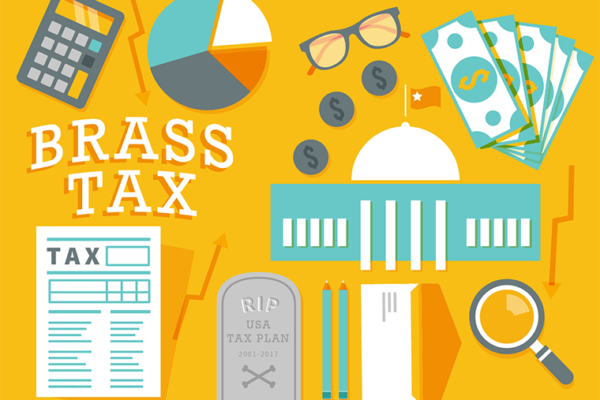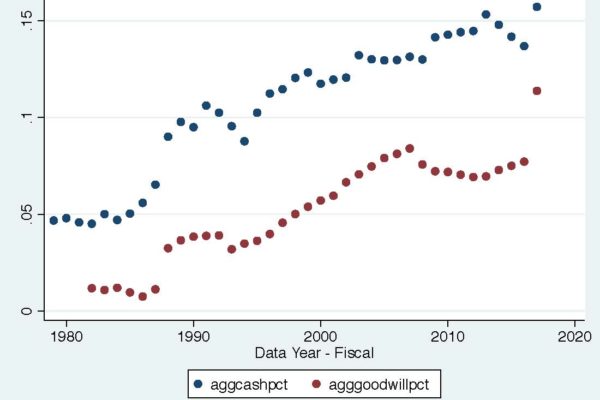The tax bill signed into law by President Donald Trump is 429 pages long. Thus, its overall impact on households and firms will become better evident only as time passes. Yet research and history provides a glimpse of what the tax law means for households, namely its effect on home mortgages and health insurance.
 Overall, aspects of the tax-reform package will reduce the attractiveness of home ownership and mortgages, and it may even adversely affect home prices going forward.
Overall, aspects of the tax-reform package will reduce the attractiveness of home ownership and mortgages, and it may even adversely affect home prices going forward.
Taxes and mortgages are related because households get to deduct mortgage interest before calculating their taxes. Therefore, having a mortgage helps reduce taxes and this is designed to encourage home ownership with borrowed money. The new tax law will reduce this attractiveness, however. The elements of the tax law that does this are the following:
- The upper limit on mortgages eligible for interest deduction decreases from $1 million to $750,000. There are also new restrictions on the type of property on which you can deduct mortgage interest.
- Interest on home-equity lines of credit can no longer be deducted for calculating taxes.
- The standard deduction increases from $6,350 for single individuals to $12,000. This is likely to increase the number of households that take standard-deduction instead of itemized deduction. This in turn will reduce the importance of mortgage tax deduction.

In our research, we highlight a number of spillover effects of house prices and mortgage debt on the household financial condition.
First, lower home prices will affect household wealth and possibly their access to cheap finance. In our paper, “The Collateral Value of Housing: Evidence From Service Member Pension Choices,” my Washington University in St. Louis colleague Thomas Maurer and I, along with Benjamin Bennett of Ohio State University, highlight that when house prices go down, U.S. military service-members borrow from their future pension at a very high cost. We argue that this happens because the service members are unable to borrow against their house using a home-equity line of credit. Thus housing is not only a store of household wealth but also has collateral value and enables households to borrow and get access to cash. A decrease in house prices will consequently decrease the ability of households to borrow and can potentially affect their consumption.
A decrease in the attractiveness of mortgage debt can have both a dark and a bright side. Home-equity lines of credit have proved to be a valuable source of liquidity for households in the past. The inability of households to deduct the interest on home-equity lines of credit is likely to make them less attractive and on the margin increase household’s cost of borrowing.
In our paper “House Prices, Mortgage Debt and Labor Mobility,” Barton Hamilton and PhD students Ankit Kalda and David Sovich highlight an important dark side of mortgage debt. We show that too much debt can affect a household’s ability to move to take advantage of attractive job opportunities. This in turn affects household labor income growth. So this time a negative can create a positive effect: By making mortgage borrowing less attractive, the tax-law will have a beneficial effect on household labor mobility and potentially household income growth.
Finally, there will be an effect from the tax law on health insurance. The package gets rid of the individual mandate, which was part of the Affordable Care Act to encourage healthy individuals to obtain health insurance so that their premiums help subsidize the medical expenses of less-healthy individuals, say those with pre-existing conditions. By getting rid of the individual mandate, the tax law may encourage healthy-individuals to not get health insurance. This turn of events likely will increase the premium for those who continue to purchase ACA health insurance.
In two papers, we highlight the beneficial effects of affordable health-insurance for household financial condition. In “The Effect of Health Insurance on Home Payment Delinquency: Evidence from ACA Marketplace Subsidies,” with Emily Gallagher and Michal-Grinstein Weiss of the Brown School, we highlight how health insurance reduces the likelihood of households to be late in their rent and mortgage payments. Meanwhile, in the paper, “Medicaid and Household Savings Behavior: New Evidence from Tax Refunds,” with Gallagher and graduate student Jorge Sabat, we argue that Medicaid increased the incentives for low-income households to save. Thus, the increase in health-insurance premiums further will adversely affect the financial condition of households.
Radhakrishnan Gopalan, associate professor of finance in the Olin Business School at Washington University in St. Louis, researches household financial issues including home-ownership, health insurance and minimum-wage regulations as well as several corporate-business issues: CEO compensation, emerging market financial systems, corporate governance and banking.



